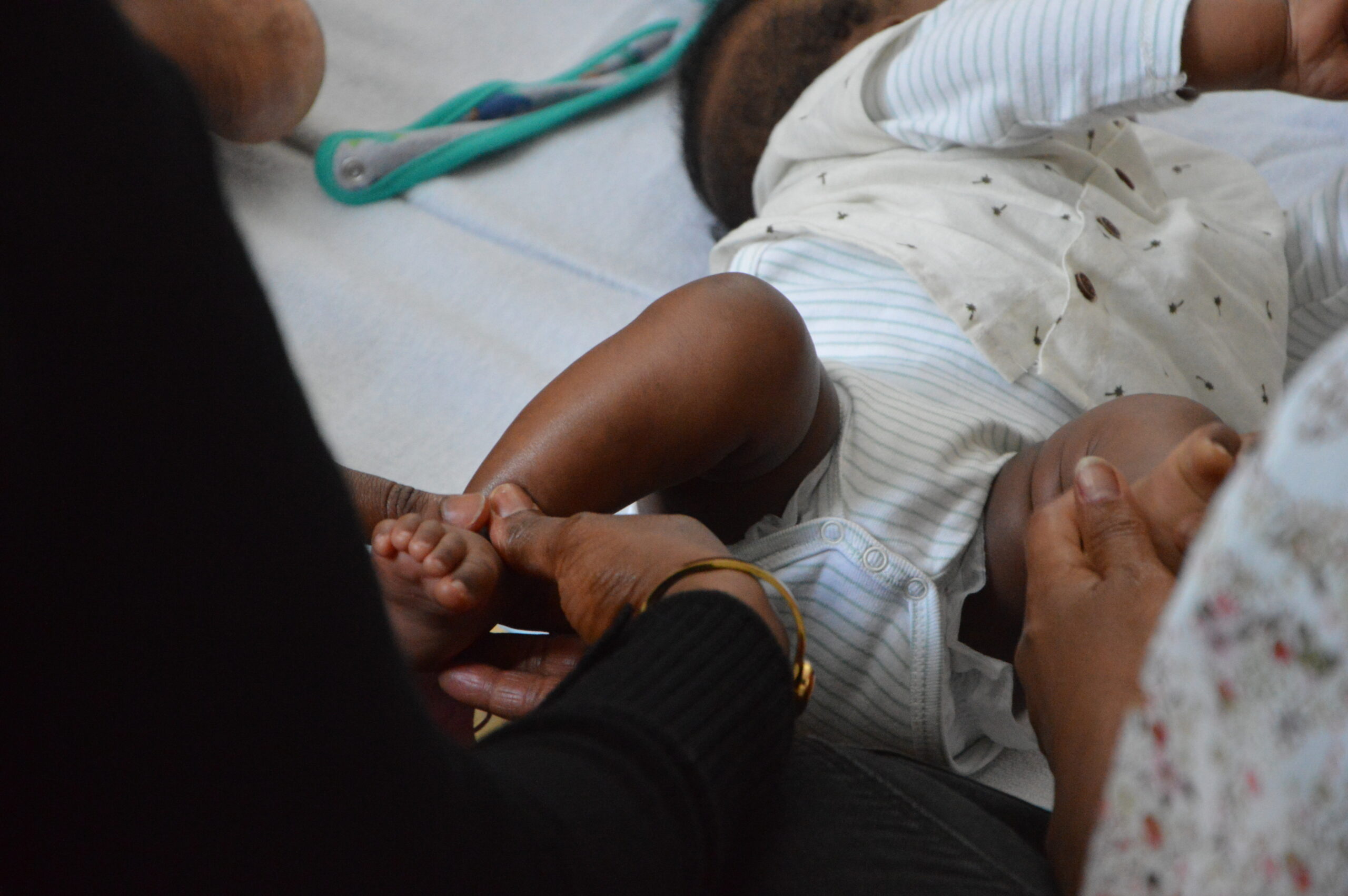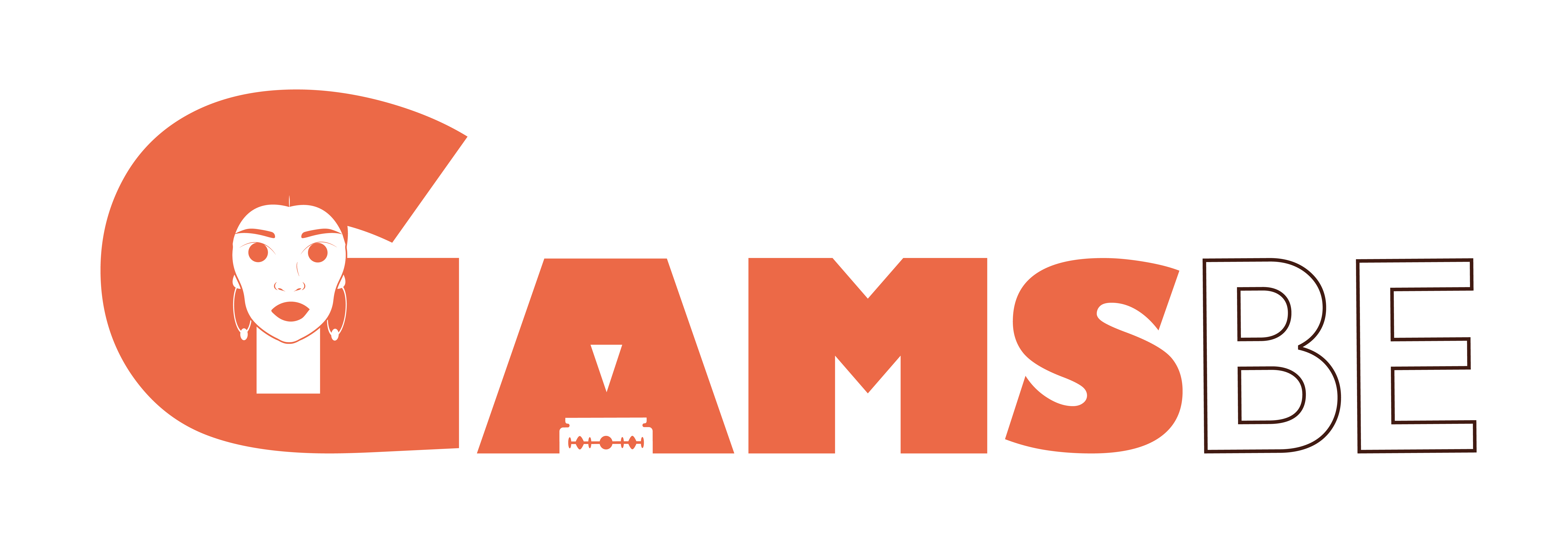Interview
Interview with pauline soupa: From volunteer to employee
Since its creation, GAMS Belgium has always been able to rely on committed individuals: midwives, translators, interpreters, childcare providers, support for affected women, IT consultants, and many others.
Inhabited first by a deep commitment, volunteers are both witnesses and actors in the evolution of GAMS Belgium for many years. Each of these individuals makes a valuable contribution to advancing the work of our association. For Pauline Soupa, a midwife, this has been going on for 10 years. To celebrate these long years of commitment, we asked her a few questions.

How did you decide to get involved with GAMS?
I met Fabienne after a conference she gave. It was our sensitivities as midwives that brought us together. I wanted to get involved, so I started coming to the Last Friday of the Month (editor’s note: one of GAMS’s oldest activities). I immersed myself in the whole GAMS atmosphere, I connected with it, and from there came the idea of creating a prenatal preparation workshop for pregnant women.
When did these workshops for women start?
They started right after in 2011. I gathered some midwife friends and we tested the first formulas. We started with 3 prenatal sessions. Very ambitious, we tried for a while with 8 sessions. We experimented with several formats over a decade. The prenatal workshops were put on hold during the lockdown. There were many different speakers over the years because it was voluntary work and it had to be combined with the hospital’s irregular schedules. Gradually, we enhanced our workshops with care more related to physical well-being to reconnect women with their bodies, care, and touch.
For you, what are the highlights of these ten years of volunteering?
Firstly, there’s the genesis of the project with all the excitement of the first times and seeing that we’ve brought something to life. What has always encouraged me to continue is the feedback from women who come back after childbirth with their babies. It’s thanks to this that we’ve been able to see what was useful, what was missing, and what needs improvement. And then, no session is the same. Sometimes there are groups where the dynamic is incredible, with an emulation that allows for discussing more taboo subjects like sexuality, contraception, or others. There are plenty of beautiful things that emerge, and you realize that as a facilitator, you didn’t need to talk because the women spoke up. It’s something I’ve kept in mind in my workshops today. My goal is also to empower them by ensuring that they all have the opportunity to express themselves, say what they have to say, ask questions beyond the language barrier. I also realize that thanks to our community facilitators, we can overcome cultural differences between women from West Africa and those from East Africa. All these exchanges are incredibly enriching.
During the childbirth preparation sessions, who is present from the GAMS team?
There is a midwife and one or more intercultural worker or peer educators depending on the languages spoken by the women and the branches where we hold the workshop. For example, in Liège, we sometimes call upon volunteers. When the group is heterogeneous in terms of countries of origin, there can be up to three people in charge of cultural mediation. Sometimes women speak French or English, and in those cases, I can lead the session alone.
You transitioned from being a dedicated volunteer to a paid employee at GAMS. Can you explain how that happened?
For some time within GAMS, there had been discussions about opening a position dedicated to these workshops, and I was convinced of the need for it. After ten years, the volunteer formula was starting to lose steam. We couldn’t offer workshops with consistent follow-up anymore. We needed a reference person who could manage the follow-up, have the same person for each workshop, and take care of all the logistics. When Fabienne (Richard) managed to secure funding through the ONE to open this part-time position, I saw the job posting and immediately applied. I really wanted to see these workshops revived in a different form and with someone who has time to dedicate to them.
And with ten years of experience at GAMS…
In addition to my experience at GAMS, what also played in my favor is that I worked for 12 years at CHU Saint-Pierre, which serves a large and diverse population, including many migrants. I have accompanied many Guinean women and other migrant women affected by FGM during their childbirth. I have concrete field experience in the support and postnatal care of excised women, which allows me to guide them to the right services according to their needs during the sessions. With Fos (intercultural worker at GAMS), we have also encountered situations involving infibulated women and were able to provide support and address the issue of deinfibulation with women and their gynecologists.
You also travel to several cities with this project.
Yes, I conduct workshops in Brussels, Namur, and Liège for now. It’s also possible for us to travel to reception centers if there’s a specific request from several pregnant women hosted in the same center.
A word to define the GAMS after so much time in this institution.
The GAMS is like a big family, it’s militant. It’s something that grabs you, you don’t come to work here by chance. I can’t give just one word. I have words, many words. It’s about exchanges, discoveries, awakening to humanity. Seeing how we are all different and how we can all come together in the end.
What can we wish for you for the ONE project that you promote?
The childbirth preparation classes represent part of the ONE project and I feel like this aspect has started well. Now, I would like to be able to focus on the training aspect for the ONE and PSE (Health Promotion in Schools) staff. We have a lot of work to do to reach young girls. It’s an audience we can reach through school medicine, and I have a lot of hope.
